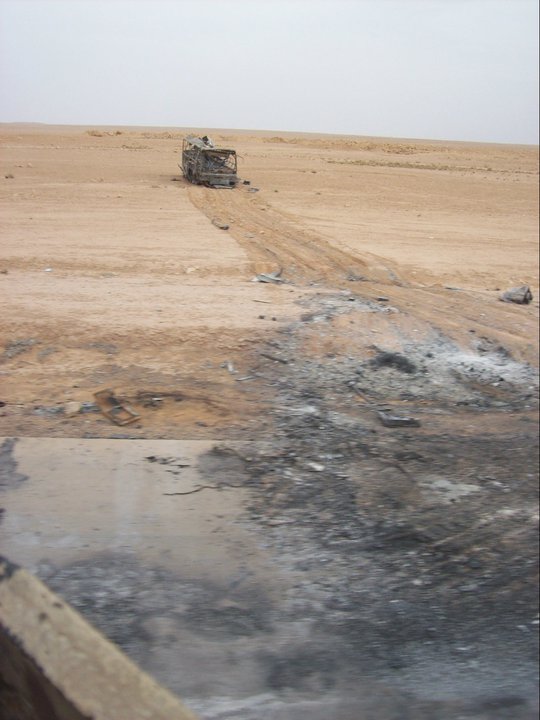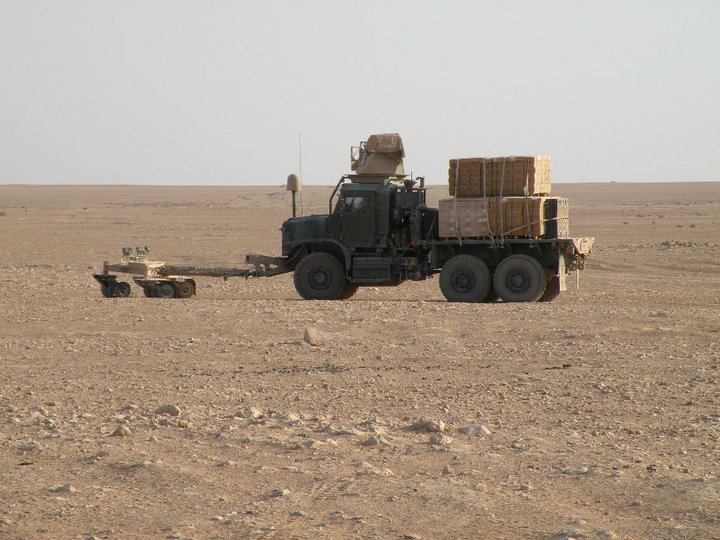Recently I was asked what languages I could speak. After all, I did a good deal of traveling while in the Marines—including a 2-year stay in Japan. After reflecting on the question, I was surprised to remember very little of the languages I had encountered. Some broken Japanese, a few inappropriate Tagalog (Filipino) phrases, and ‘Ogif!’, meaning stop in Arabic. I was actually a little disappointed to have retained so little of the languages I was surrounded by for years.
A few days later I was explaining to the same friend how some of the convoy operations took place, and found myself having to explain some of the military jargon. It suddenly dawned on me that in fact this ‘Marine-talk’ was so distorted and strangely complex, that it takes the form of a language unto itself.
Marine-talk-101 actually begins in boot camp, and is all part of the transformation process. By replacing the name of an item, it creates a new identity or association for that particular thing. For example, a pen becomes an ‘Ink-stick”. A small change of course, but this minute transformation of language renders an entirely new reality. Shoes are ‘go-fasters‘, a door a ‘hatch‘. The floor becomes ‘deck‘, our hands become ‘paws‘. The language transformation is so absolute, that the 1st person is entirely removed from the language. There is no longer an I, or Me; rather, a ‘this-recruit‘.

This unique form of rhetoric bleeds into the deployment experience as coded communication over radio networks becomes necessary. Call signs are assigned to individuals, and we speak through the Phonetic alphabet.
Here is a quick guide to Marine-talk radio chatter:
Roger-Tango– Translates to roger that, or understood
Oscar-Mike– On the move, Convoy is now moving.
Lima-Charlie– Loud and clear
Whiskey-Foxtrot– What the fuck?
Fubar– Fucked up beyond all recognition.

Here is an example radio conversation in Iraq, between myself and the Convoy Commander:
Me: CC, CC come in, this is roller, over.
Commander: Roller, this is cc, send it. over.
Me: CC, be advised, the road is FUBAR. break.(to signify a pause, so no one ‘walks’ on our conversation) We cannot pass directly, seeking alternative route now, break. Going to approach from port side. How copy? over.
Commander: Roger Tango, Lima charlie. Advance with caution. over.
Me: Roger that, roller is Oscar Mike. Out.

So reflecting upon the original question, I would lament that I speak English, a little Japanese, and fluent Marine.

This is a really interesting post about the language marines use. I had no idea that the marines changed the names of ordinary objects. It makes sense that the new words would carry different meanings and different connotations. It was really interesting to read about the your time in the marine. This is really a fantastic blog, and every post is unique and completely engrossing.
What’s fun about this is that even if you knew some crypto stuff, you could still have a difficult time understanding this kind of radio chatter because of just how complete the transformation is from English to US Marine. The fact that it is still loosely based on English adds a layer to the pseudo encryption in that it is now necessary to decode the English to decode the marine. I like this post!